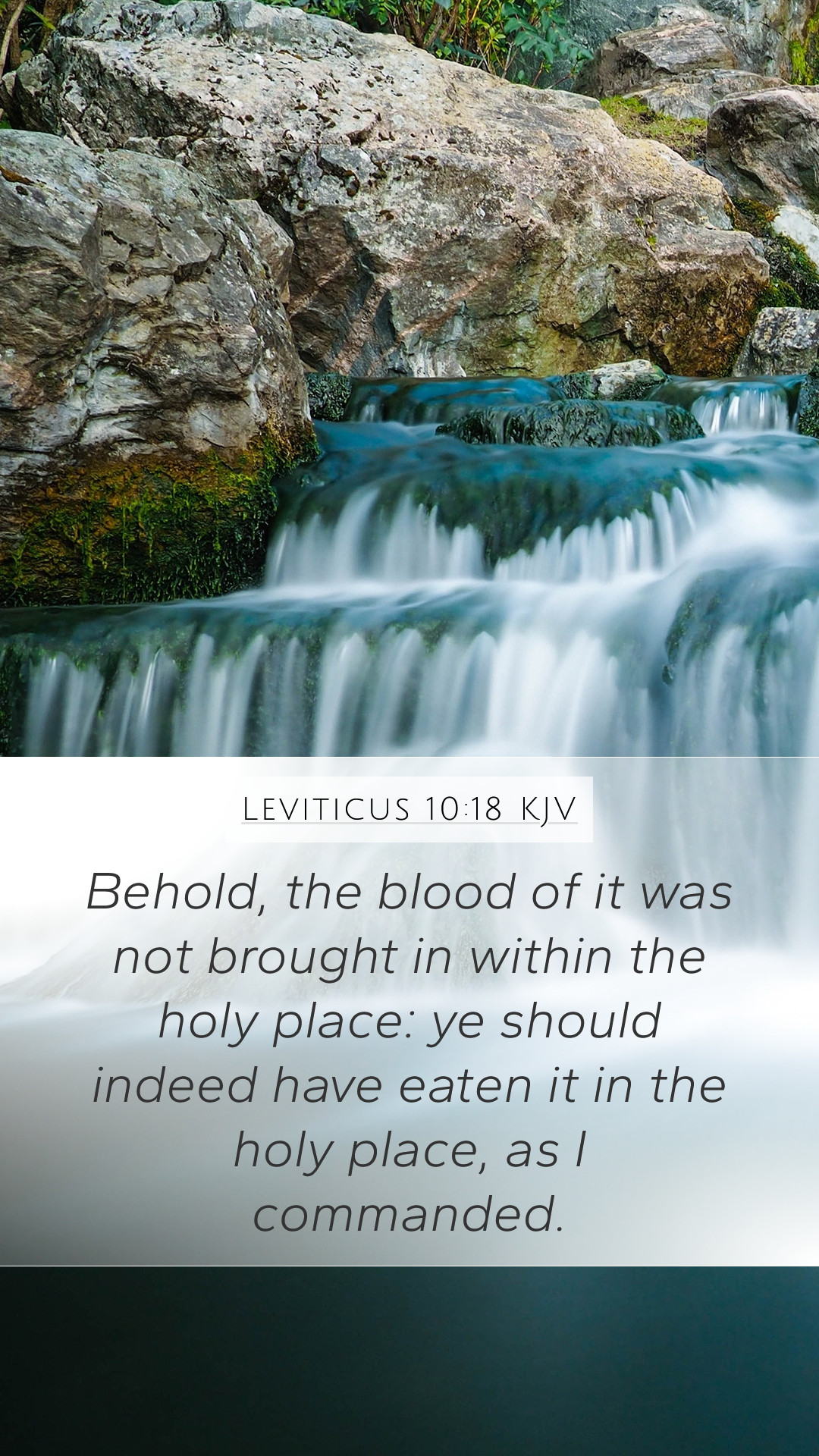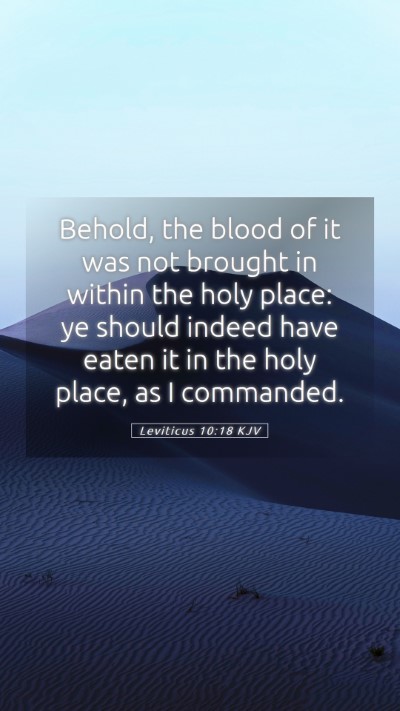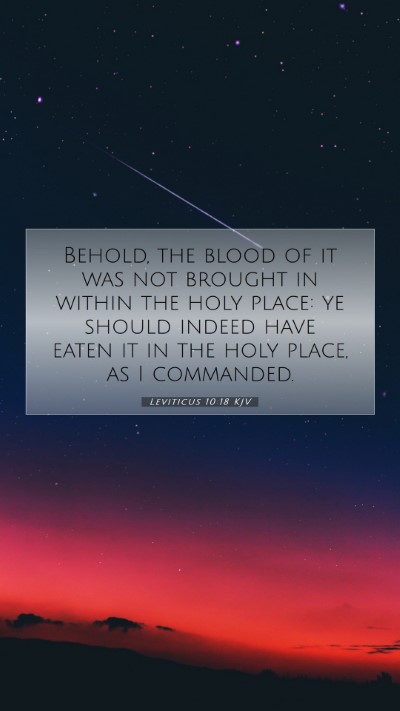Bible Verse Meaning and Commentary on Leviticus 10:18
Bible Verse: Leviticus 10:18 - "And the meat offering that remaineth of the sacrifices of the Lord made by fire, shall be eaten; it shall be eaten in the holy place: for it is most holy."
Summary of Leviticus 10:18
This verse discusses the proper conduct regarding the consumption of sacrificial offerings that are significant within the holiness context of worship. The focus is on divine instructions that demand precision and adherence to ceremonial laws.
Understanding the Context
Leviticus is a critical book that outlines the laws and regulations for the priests and the nation of Israel as they worship and serve God. In the preceding chapters, the importance of holiness and ritual purity is emphasized, especially following the tragic events around Nadab and Abihu, who presented unauthorized fire before the Lord and faced severe consequences.
Bible Verse Interpretations
Commentators such as Matthew Henry, Albert Barnes, and Adam Clarke provide insights into this verse which highlight several themes:
-
Holiness of Offerings: The mention of the meat offering being most holy signifies the sanctity associated with offerings that are presented to God. This reflects the principle that everything in worship must adhere to standards set by divine instruction.
-
Proper Consumption: The designated eating of the offering in the holy place underscores the importance of location and context in worship practices, ensuring that those who partake do so respectfully and in communion with God's statutes.
-
Symbolism of the Offering: The offerings symbolize more than sustenance; they represent fellowship with God and the covenantal relationship between God and Israel where offerings act as a bridge in this sacred relationship.
Bible Study Insights
Leviticus 10:18 provides a rich opportunity for Biblical exegesis and Bible study insights. The regulation concerning sacrificial offerings not only instructs about physical consumption but also symbolizes deeper spiritual truths. Observers and scholars are encouraged to consider:
-
Covenantal Relationships: How do the sacrificial laws reflect the broader themes of covenant in the Bible? How does this echo the New Testament understanding of sacrifice through Christ?
-
Contemporary Application: What principles from this passage can be applied to modern worship practices? In what ways do believers express their devotion in ways that honor the holiness of God?
-
Historical Context: Understanding the significance of sacrifices in ancient Israel and how ritual practices served to maintain the community’s relationship with God helps in interpreting this text more fully.
Conclusion
Leviticus 10:18 challenges believers to recognize the significance of obedience in worship and the importance of engaging with God on His terms. The meticulous nature of ritual laws showcases a God who desires holiness not only in offerings but in the lives of His people, prompting ongoing reflection and understanding in Bible study groups and personal devotion.
Related Bible Cross References
- Exodus 29:33 - Discusses the consumption of offerings by the priests.
- Leviticus 22:10-16 - Speaks to the conditions for consuming sacred offerings.
- 1 Peter 2:9 - The call to be a holy priesthood, reflecting the sacrifice in our lives.
Encouragement for Study: As you engage with this verse and its meaning, consider how to incorporate this understanding into your Bible study lessons, discussions, and personal reflections. This will deepen your appreciation for scripture and allow for a greater application of biblical truths in everyday life.


